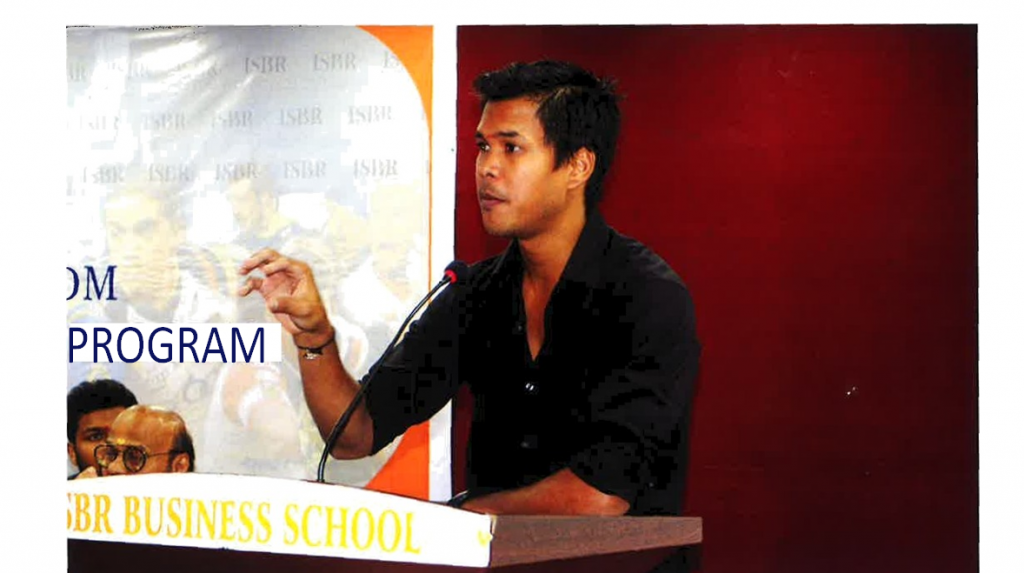Interview with Padma Shri Somdev Devvarman, former International Tennis Player
From a nine-year-old boy in Chennai to being awarded with the prestigious Arjuna and Padmashree awards as your contribution to sports, how has your journey been so far?
My journey has been incredible and I had never imagined it would be. I had never dreamed that I would ever win the Arjuna Award; definitely not the Padmashree Award. Mypassion helps me accomplish anything because I have lot of it. It means a lot to me and hence very easy for me to invest a lot of my own self and believe in what I do. So that’s pretty much in the journey so far.

In your career you must have faced failures also, what kept you driving?
Yes..! Failures are part of sports. I think one of the coolest lessons that you learn from sports is how to deal with wins and losses. As you grow, you start realizing that it’s really not about wins and losses but more about what you can learn through them. In fact, you learn a lot more from losses before you win. Through your losses, you learn about yourself, you learn how to improve which gives you a direction to know exactly what went wrong, what went right, gives you the perspective for what needs to be worked on.
What’s your fitness mantra?
I make sure I stay active. I cycle a lot; in fact I cycle to work on most days. Apart from that F am into playing various sports with my friends, being active and social.Whether it’s adventuresports or anything that’s fun, I can keep my fitness going.
Any rituals that you use to follow before you prepare yourself for the game?
A ritual is nothing but getting into a routine that you are very comfortable with and helps you perform your best in the right mind space. One of the things that I used to dO WaS I always wear my left shoe before my right shoe.
Even Rafael Nadal, an all time Tennis Star, got a lot of small things; with his bottles and when he is walking, jumping over lines, going around the court or so. I have them like everybody else and I think it’s something that helps you remain focused.
How can the educational institutes help in building the culture of sports in India?
Educational institutes have a humongous part in building the sporting ecosystem in India. But more importantly, I think from the grass-root level, the preliminary education level, and 10th or 12th level, a lot of athletes face problems because they got driven into a situation where they have to choose between studies and sports.
However, things are changing slowly. Education system in India should start giving sports its due importance. Why sport is important; it’s not only about winning, it’s also about the learning life skills, lifestyle and health. A simple way to ensure good health is to make sure that we engage in sports regularly. It’s something that’s fun, it’s something that’s social, you can do with your friends, and you can do alone. You learn teamwork, dedication and understand wins and losses; you can understand the feelings you have before a big match, similar to what you feel before the big exam or ajob interview.
These skills are applicable to real life regardless of your profession. The education system in our country needs to take initiative to make sports popular and thus build a culture of sports.
How can the government and the sports authorities help in structuring sports to nurture talent?
I think government has a big part to play because every sporting federation in our country falls under a government body. There are 52 national federations, so naturally the government does have a very important role. There is good news and a bad news, the bad news is we need to get lot better; the gOOd news is we are getting a lot better.
Being a little more proactive in getting more Athletes involved in the administration and also getting CEOS Who are accountable, confident, and motivating have changed the sporting ecosystem in India for good.
What are your views about this course of PGDM sports management that ISBR has launched?
Sport is not only about creating champions, it’s about creating lifestyle, and creating a culture. So in a sporting ecosystem, if you look at something as simple as organizing an event there are so many aspects such as event management, athlete management setup marketing, social media, sales.
The fact that great institutions like ISBR have started to understand the importance of sports and how it can actually benefit our future is a very important step. I am very happy to be associated with ISBR; it is a great business school encouraging the sports system in our country which is evolving; it may be at a nascent stage but on the bright side we something to look forward to.
We are glad to hear about your foundation, Life is a Ball. How has it been able to nurture young talent?
Life is a Ball was started in Chennai by a couple of friends and I. We provide free sports programs to underprivileged kids and work with a lot of government schools. It all began with an orphanage very close to where we lived, which had about 30 boys. We thought about organizing a football match and gave them some food and other basic necessities. It was a huge hit and the kids loved it. We also realized that kids need to play consistently in order to actually yield all the benefits and succeed in the long run, which requires continuous efforts.
Congratulations Somdev! The one word that defines Somdev is?
Oneword to define me is passionate. I am a very passionate person when it comes to my music, tennis, sports, business, and anything I work with. That is what really drives me.

